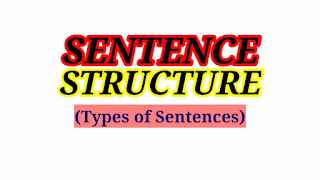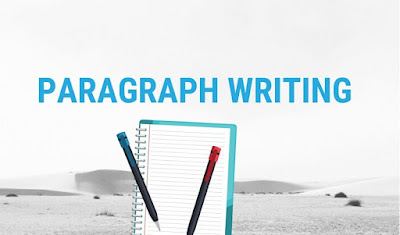Study and exam
Study and Examination Techniques:
Do you know how to regulate and organize the study time? Do you know how to squeeze everything from that time you spend reading the several books. This section contains some valuable hints about the how and why of studying. Learn the hints and use them; you'll be pleasantly surprised With your upgraded study efficiency.
A DEFINITE TIME:
Set a specific time in your daily schedule, which shall be known and observed as your official study period. Also set a a minimum and a realistic maxinmum amount ot time to be spent in study. Deeply observe these limits.
You can never truthfully say that the teacher did not make a specific assignment for next class, so there is not much to study. If there is no assignment for the following class meeting use your study time for a good review. Then you won't have to cram for your next test.
you cannot afford to allow non study activities to take any part of your study period. Tell your friends not to come by for a visit or call during your study hours. Don't receive telephone; leave instructions that you are not at home.
How much time will you need? You will be able to determine this shortly after your short courses. Surely the total time you'll need will be determined by the number and type of courses and your own study efficiency.
A DEFINITE PLACE
Where should you study? Any place — a desk in your room, a kitchen table where you can be reasonably comfortable and away from the main stream of activity in your home office or dormitory. Get away from television set, children and home mates. It is important that spot you select be one which you normally do not use except for study. If it's the table or desk where you play cards, it's very easy to think about the last game there rather than about what you are trying to Study.
STUDY PROPS:
You use specific terms for a bath — soap, towels,etc. as a matter of fact, if you don't use the right things, your bath wont be a good one same is true for study.
Use a table or desk of adequate size and height. And this is most important thing, clear it of everything except the actual books or materials you require to study properly that one particular subject you are working on. You can't concentrate very well on writing them for English class if you have in front of you a math with 20 problems waiting tor you, and half a dozen other tasks and assignments. The other subjects can be taken care of easier after you complete one assignment more satisfactorily because you are giving it your attention. Sit in a chair, not one which is too ccmfortable, unless you plan to snooze.
LIGHT AND TEMPERATURE:
Have a good light on your desk. The rest of the room should be lighted very softly, With a soft in the background, distant objects - paintings, wallpaper, statues. etc - would not have too much chance of stealing your attention. The temperature of your study room should be a degree or so cooler than normal. You likely will become sleepy if the room too warm. Arrange for fresh air circulation if possible.
DURATION OF STUDY:
How long can you Study effectively in one sitting? It depends on many factors, but it is relatively safe to say that 30 to 45 minutes is about the maximum you can study without taking a break. whether scheduled or not.
So it is wise to schedule a five-minute break about every half to three quarter hour. When you do break then get completely away from you work both physically and mentally. Take a walk out or around the house. Get a drink of water or a glass of milk. Reward yourself.
After five minutes, you'll return to your study mentally and physical refreshed. This study break habit will enable you to study for longer periods of time with the minimum amount of fatigue and max. efficiency. For study just try it and see the difference.
HIGHLIGHTING AND UNDERLINING:
You may find it useful to underline or highlight key points in you study text-but do be selective. You may also wish to make points in the margins to help with your studying and revision.
REVISION:
The best or good approach to revision is to revise the course as you work through it. You should also try to leave four to six weeks before the exam for final revision.
1-Read through the text and your notes again and condense your notes into key phrases. It may help you to put key revision points onto index cards to look at when you have a few minutes to spare time.
2-Review any assignments you have complete and look at where you lost marks, be sure you have put more work into those areas where you were weak.
3-Practise questions - if you are short of time simply list the points that you would cover and then read the model answer, but do try to complete at least a few questions under exam conditions. You can practise questions from your text, from Foulks Lynch Revision books, or from the on-lone site. The section below on answering questions may be helpful here.
4-Read good newspapers and professional journal, - this will help you keep up-to-date and give you an advantage in the exam.
5-Ensure you know the structure of the exam - how many questions and of what type you will be expected to answer - and ensure you can attempt all the different types of questions that you may be asked.
EXAMINATION TECHNIQUE:
First of all, be sure you know when and where your exam is being held, and give yourself plenty of time to get there - allow for traffic jams, etc.
When getting ready for exam, be sure you have all the equipments you need- pens, pencils and calculator.
At the start of the exam, plan your time so that you award equal time for each mark available. Allow time at the start of the exam for reading the paper and at the end of the exam for checking your work. Throughout your exam, keep checking the time and don't over run on questions - move on hand, if there is time at the end, come back and finish the question. It is a lot easier to gain marks in the first few minutes of answering a question than it is to gain those last remaining marks. Remember to attempt all Parts of a question.
Finally don't panic - if you are stuck, move on and come back to the question later. You may find that it helps to answer the questions you feel happiest with first, as this will boost your confidence and calm you down.
ANSWERING QUESTIONS:
1-Fully explain all your points but be concise- ensure that you include enough material for the examiner to award marks, but that you don't waste time including unnecessary padding.
2-Write the question all your points, but be concise - ensure that you include enough material for the examiner to award marks, but that you don't waste time including unnecessary padding.
3-Don't write out the question.
4-Set out all workings clearly and neatly and state briefly what you are doing.
5-Write neatly and coherently.





Comments
Post a Comment